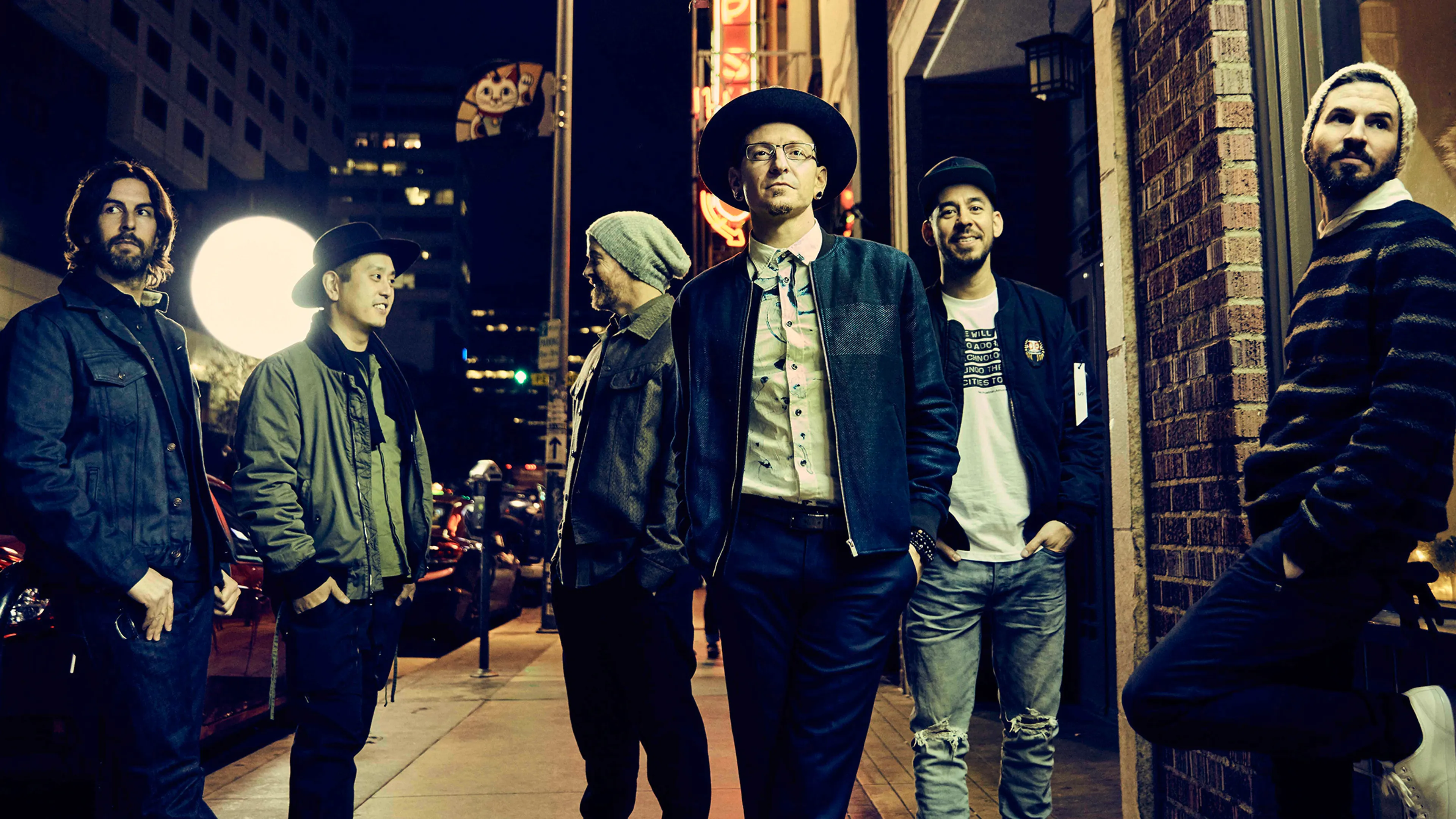“My answer before was to close my eyes, grab a machete and just start swinging,” said Chester, describing his previous creative approach. “That worked for a long time, but doing that you don’t know where you’re going and you don’t know what you’re swinging at. Now I survey the area where I want to go and I find the most productive way of getting there, and I work with as many people as I can to tread a clear path.”
Somewhat controversially, on One More Light these collaborators included Julia Michaels and Justin Tranter, bona fide hitmakers who’d worked with Justin Bieber, Britney Spears and Gwen Stefani. Both halves of the songwriting team brought crucial ingredients to the table.
“Julia seemed to be able to tap into that dark side quite easily,” said Chester, “which is awesome because that’s where I live.” Chester had originally asked Julia to lend her vocals to the album’s first single, Heavy, but she’d refused on the grounds she preferred to remain in the background creatively. She evidently warmed to the idea, though, because a few months later she had a hit of her own with the song Issues. “Something must have happened to change her mind,” laughed Chester.
Released on February 16, 2017, Heavy featured singer-songwriter Kiiara (real name: Kiara Saulters), a huge Linkin Park fan.
“I’d already done a whole performance of the entire song all the way through, and then she came in and crushed her vocal,” recalls Chester. “It took the song to another place; it gave me the feeling that it’s not just me going through that thing. It’s not a duet love song – it’s two people approaching the same experience.”
Seeing a situation through another’s eyes was also powerfully brought to the fore by Talking To Myself, which saw Chester empathising with his second wife Talinda’s position when he was at his unsalvageable low points.
“It’s about relating to how [she] must have felt when I was battling my demons,” explained Chester. “Seeing it going down and not being able to do something must have sucked.”
For Justin, the other side of the creative pair assisting the band – not to mention the former frontman of New York alt.rockers Semi Precious Weapons – the first step to penning a smash was finding a subject with a story to tell, then “amplify [their] guts”. He had plenty to work with with Linkin Park, six men with no shortage of questions, frustrations and fascinations – which Mike would list on a board for inspiration.
“It’s so nice to get to sit in a room and talk about life with your friends,” reflected Chester of the process they adopted, which saw the band finalise the lyrics to a song before any music was composed for it. “[It wasn’t] stuff like the weather or what we had for lunch yesterday, but really getting into what’s going on with each other.”
